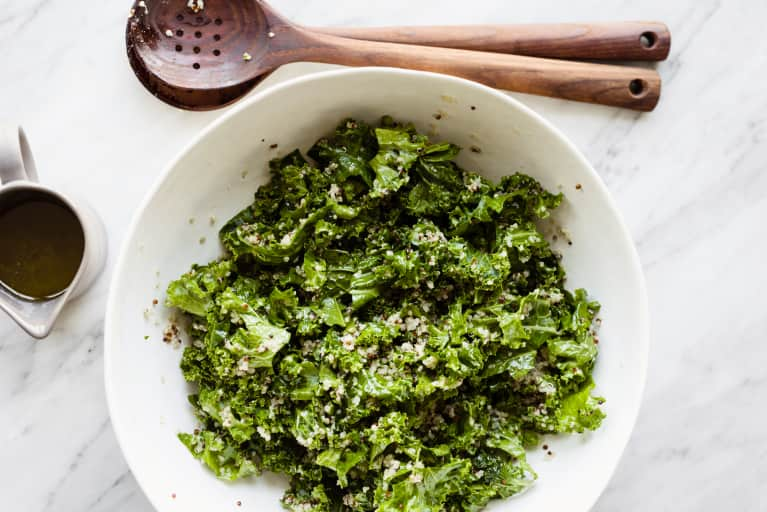Kale is a green, leafy, winter vegetable high in fiber and potassium. Kale is also a very tasty nutritious side dish or goes nicely in smoothies and salads. Those taking blood thinning medications or with a kidney issue may possibly not be able to consume kale.
Kale can help boost wellbeing and prevent a range of health issues. Kale contains fiber, antioxidants, calcium, and vitamin K that provide many health benefits. Kale also provides chlorophyll, vitamin C and iron. The large amount of fiber found in Kale may help lower blood glucose levels in those with diabetes. One antioxidant that Kale possess is alpha lipoic acid. This acid may help lower blood glucose levels, increase insulin sensitivity and prevent oxidative stress induced changes. It may also help curb neuropathy.
Kale is a great food to eat if you are striving to improve heart health. With fiber, potassium, vitamin C and vitamin B6 kale can help decrease sodium intake as recommended by diets for cardiovascular disease as well. The high amount of potassium also helps reduce risk of stroke, protects against the loss of muscle, preserves bone mineral density and reduces reduces chance of kidney stone.
Like other green veggies kale contains chlorophyll that can help prevent the body from absorbing chemicals that are produced when grilling and have been associated with cancer Kale binds to the carcinogens and prevents the body from absorbing them thus cutting the risk of cancer. Likewise, kale helps keep the inside of your body working well by helping to prevent constipation and promote regularity and healthy digestive tract. The vitamins B and C found in kale helps promote iron absorption that helps the body release energy.
Looking to help your appearance and feel better as well then kale is one thing you will want to add to your diet. The beta carotene in kale helps make sure all body tissues grow. Skin and hair is kept moist by the sebum that is created by the body. Eyesight as well as the immune system and reproductive system are helped via the vitamin A found in kale. The immune system is allowed a boost by kale and the vitamin C it has. The vitamin C is needed to absorb iron that helps the bodies immune system and prevent anemia.
While Kale has many features that help boost the body there are a few risk factors to kale as well. Those with heart disease that take a beta blocker may want to check with doctor before consuming as kale can add potassium to the blood. Those taking beta blockers need to limit potassium foods. Likewise, those with kidney issues that can not consume potassium should not eat Kale.
retweet post here
shared at these blog hops, linkups and parties



No comments:
Post a Comment
I love comments so if you have a minute leave me your thoughts on the above post